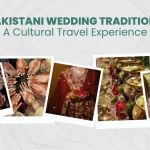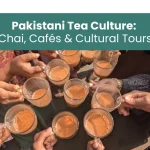Pakistani Literature and Poetry: A Soul-Stirring Legacy
Pakistani literature and poetry have long been the heartbeat of the nation’s cultural identity. From verses that sparked revolutions to novels that peeled back societal layers, the country’s literary tradition reflects its rich history, struggles, beauty, and resilience. Writers like Allama Iqbal, Faiz Ahmed Faiz, and Bano Qudsia didn’t just write, they ignited movements and redefined how Pakistanis saw themselves.
If you’re a lover of words, history, and soul-deep inspiration, exploring the world of Pakistani literary legends is a journey worth taking.
Allama Iqbal: Shaair-e-Mashriq
Widely regarded as the spiritual father of Pakistan, Dr. Allama Muhammad Iqbal was more than just a poet. His philosophical poetry in Urdu and Persian reflected themes of selfhood (khudi), revival of Islamic thought, and the unity of the Muslim world. Works like Bang-e-Dra, Asrar-e-Khudi, and Payam-e-Mashriq earned him international acclaim.
Iqbal’s poetry remains essential reading for anyone seeking to understand the soul of Pakistan. His vision not only inspired a nation but laid the ideological groundwork for its creation.
Travel Tip: Visit Iqbal Manzil in Sialkot, his birthplace and now a museum dedicated to his life and legacy. Join our Punjab Tour Package, which includes stops at Iqbal’s tomb in Lahore, the Lahore Museum, and Government College University where he once studied and taught.
Faiz Ahmed Faiz: The Voice of Resistance
Faiz Ahmed Faiz stands as a towering figure in Urdu poetry, celebrated for combining lyrical beauty with bold political expression. A progressive writer and Marxist intellectual, Faiz used verse as a vehicle for resistance against oppression and inequality.
From Mujh Se Pehli Si Mohabbat to Bol, Faiz’s poetry remains timeless. His words still echo at protests, in songs, and on university walls, proof that literature in Pakistan is as much activism as art.
Travel Tip: Explore our Faiz Literary Tour (Lahore), which includes a visit to the Faiz Ghar in Lahore, his preserved home-turned-museum, and the iconic Pak Tea House, once the hub of progressive writers and poets.
Bano Qudsia: The Storyteller of Souls
One of Pakistan’s most beloved novelists, Bano Qudsia used fiction to explore themes of love, spirituality, psychology, and human flaws. Her groundbreaking novel Raja Gidh remains a bestseller decades after its release, often considered a philosophical masterpiece.
A pioneer for female voices in Pakistani literature, Qudsia opened doors for generations of women to explore their place in society through literature.
Travel Tip: Visit Model Town, Lahore, where Bano Qudsia lived with her husband Ashfaq Ahmed, another literary legend. Our Women in Literature Tour celebrates her life and legacy alongside other iconic female authors.
Literary Hubs and Cultural Spaces
Beyond individual writers, Pakistan’s literary culture thrives in its many tea houses, libraries, and book festivals. Cities like Lahore, Karachi, and Islamabad are homes to institutions and cafes where literature lives and breathes.
Must-Visit Literary Hubs:
- Pak Tea House (Lahore) – A historic café where legends like Faiz, Munir Niazi, and Saadat Hasan Manto once debated and read poetry.
- Iqbal Academy (Lahore) – A research center and library preserving Iqbal’s works and ideology.
- National Book Foundation (Islamabad) – A hub for book lovers and literary events.
- Karachi Literature Festival – An annual event bringing together writers, poets, and thinkers from around the world.
Other Notable Literary Figures
While Iqbal, Faiz, and Bano Qudsia shaped the core of Pakistan’s literary legacy, many other notable literary figures have contributed richly to the nation’s evolving narrative. Their works span poetry, fiction, satire, and social commentary, each voice adding depth and diversity to Pakistani literature.
Saadat Hasan Manto
A master of the short story, Manto explored human psychology and the brutal realities of Partition with unmatched honesty. Stories like Toba Tek Singh and Thanda Gosht remain essential reading.
Intizar Hussain
Known for his nostalgic storytelling and deep philosophical insights, Intizar Hussain’s novels like Basti reflect post-Partition trauma and cultural dislocation.
Ahmad Faraz
Often called the romantic voice of resistance, Ahmad Faraz’s Urdu poetry blended love and protest, making him a favorite among youth and activists alike.
The Legacy Lives On
The legacy of Pakistani literature continues to flourish through modern poets, spoken word artists, and novelists. Writers like Mohsin Hamid, Fatima Bhutto, Harris Khalique, and Afzal Ahmed Syed carry the torch forward, blending tradition with modernity.
Literature in Pakistan is not just about the past; it’s a living, breathing part of its present and future.
Discover Pakistan Through Its Poets
From the philosophical verses of Iqbal to the rebellious lines of Faiz, and the introspective stories of Bano Qudsia, Pakistani literature and poetry are deeply woven into the fabric of its identity.
📞 Ready to explore Pakistan through its most powerful voices?
Let words lead your way. Join our tours and walk in the footsteps of legends.



